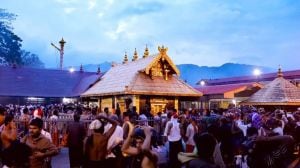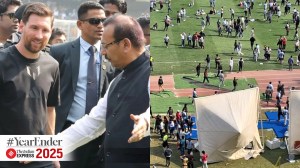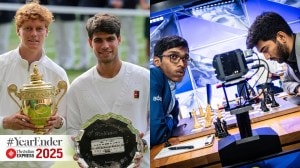Pragmatic Vajpayee
It is encouraging to find Atal Behari Vajpayee so clear-headed on what needs to be done on the Pakistan front. He has emerged rapidly fro...

It is encouraging to find Atal Behari Vajpayee so clear-headed on what needs to be done on the Pakistan front. He has emerged rapidly from the fog of the election campaign and set aside rhetoric about being stabbed in the back and so on. He is prepared instead to make a fresh beginning with Pakistan. 8220;There is no other way except reviving our dialogue8221;, Vajpayee said in an interview to this paper. Such pragmatism is very welcome. It is the right approach to take towards Pakistan. It looks therefore as if there will not be too much of a policy hiatus if the National Democratic Front comes to power. Efforts can be expected to be made quite early for the resumption of official talks. Whether Islamabad will respond appropriately depends on how soon the domestic political crisis in Pakistan will end.
During the present turmoil there, New Delhi must be prepared for anything. Vajpayee suggests American pressure might deter one or other political contender in Pakistan from trying another ill-conceived adventurelike Kargil. Whether or not adventurism is a remote possibility, it must be taken into account as must the prospect of prolonged political uncertainty and policy paralysis in Islamabad. Is any purpose served by trying to initiate talks before Pakistan sorts out its leadership quarrels? The answer is yes. First, it would be a positive signal about India8217;s willingness to go the extra mile to find a solution to outstanding problems. Second, it would deliver a clear message to the whole Pakistani political establishment that the only way forward is through bilateral negotiations; anything else is futile and self-defeating. Third, an Indian initiative could turn out to be just what democratic leaders in Pakistan need to douse the fires of popular discontent after Kargil.
Vajpayee speaks regretfully about higher defence expenditure that India and Pakistan are compelled to incur after Kargil. He must have the courage to go further and do what is necessary to halt the arms race which the two countries are embarkedon in the conventional weapons and nuclear fields. The arms race will strain their finances severely and Pakistan8217;s sooner than India8217;s. It is suicidal. Hawks in both countries must be reminded that the only winners in arms races are arms manufacturers, in this case mainly western ones whom New Delhi and Islamabad enrich at the cost of their own people. A majority of the world8217;s poor people live in South Asia according to a new World Bank report, and the numbers have risen in the last decade. Here are governments purchasing military aircraft, for example, with price tags of millions of dollars. And here are 500 million South Asians who live on less than one dollar a day. This terrible contradiction occurs because politicians in India and Pakistan have been hugely successful in making national security a popular issue. They must rise to the challenge of the new age which comes from more mundane but in the long run truly critical issues like health and education and the removal of poverty. If Vajpayee remainsprime minister, he could make the durable contribution he dreams of by bringing a halt to the India-Pakistan arms race.
- 01
- 02
- 03
- 04
- 05






























